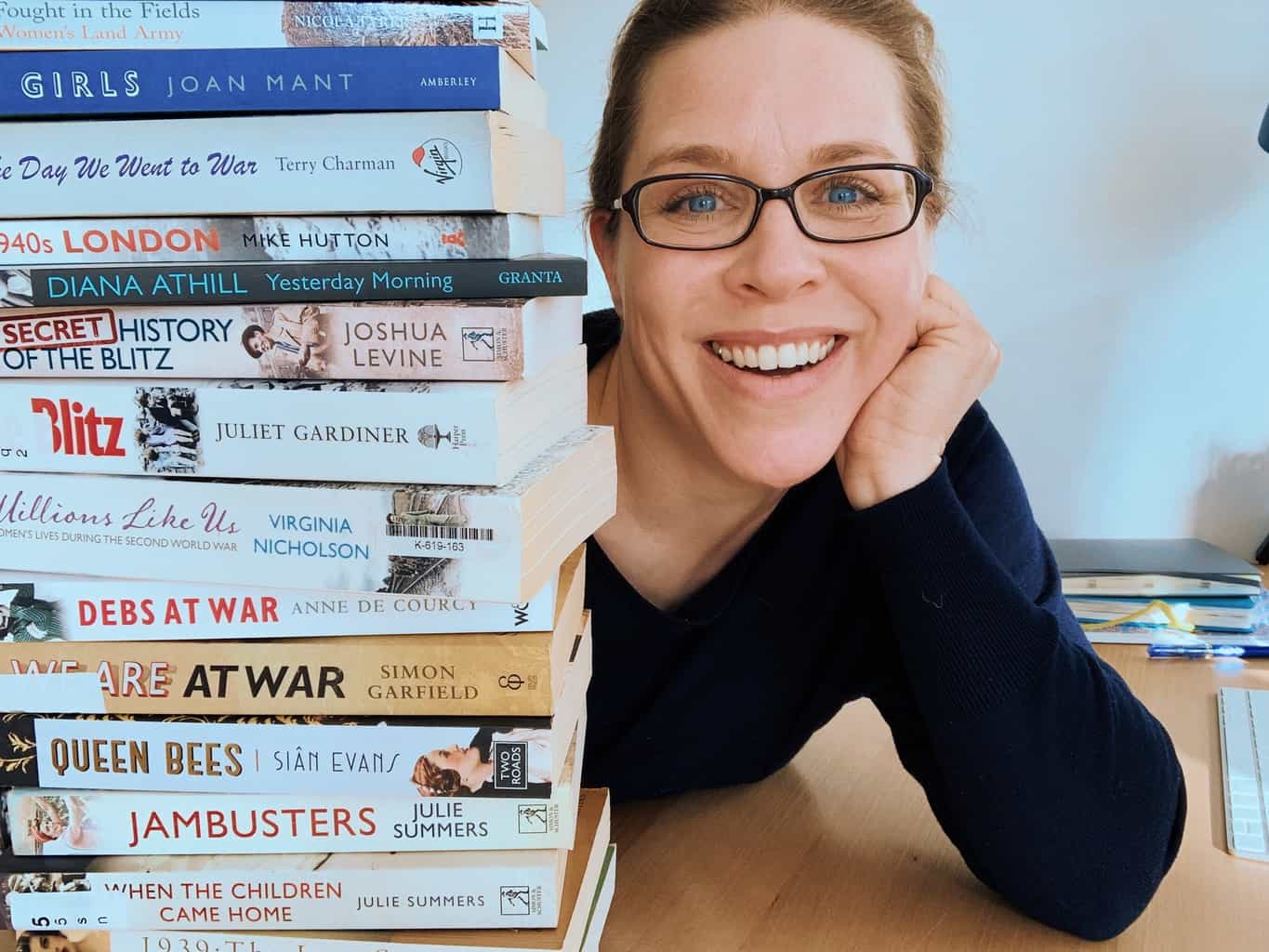Research is a writer’s best friend. Other things are too, of course, like chocolate, ear plugs and woolly socks, but research is unparalleled in holding your hand during the writerly journey. It lets you step away from your story for a bit, it sparks ideas, and it can push you right through that terrifying thing called (*insert hushed tones here*) Writer’s Block. When you know that you’ll never ever write another word in the history of all written words, that you’ll have to cancel your contract and end up in jail because you can’t repay the advance (since you spent it all on chocolate, ear plugs and woolly socks) — then research often helps refocus the mind. Whether you read up on hospital layouts in 1958, debutante life pre-WW2 or binge-watch all seven seasons of Call the Midwife, research is ‘work’ and ‘work’ means you’re moving forward.
If I could get away with it, I’d spend as much time reading about real people in history, as I hang out with my imagined folk. Deadlines being what they are, however, I split my research into two stages to be as efficient as possible. When I first put my idea on paper, I need a birds-eye view of the historical framework to make sure I don’t hinge the entire plot on a key factual flaw that cannot be ironed out later. In My Mother’s Shadow, for example, I had to understand how birth certificates and adoptions worked between the 1950s and 2000 because a lot of the story depended on that process. Book 3 was going to open with the heroine being sent to Canada for the duration of the war until it became clear that transatlantic passenger travel was cut right back as of September 1940. Now the heroine’s mother is sending her to Yorkshire instead.
A few drafts in, the plot is mostly set and I have a clearer idea what specific information is still needed, where I’m stuck, what I want to describe in more depth: How to forge a ration card; how a country house is laid out; what a rich girl’s suitcase would look like vs how a poor girl might carry her things; what radio programme might convey which news at what time; how likely it is to survive a fall from how steep a drop. That’s when things get interesting (and when Google starts thinking I’m either a serial killer or want to open a gardening centre!) and it has me constantly amazed at the wealth of information at our fingertips. You can find weather reports as far back as 1884 on the UK Met Office. The BBC has a site called WW2 People’s War with 47,000 personal stories about the war, and The British Pathe has an amazing newsreel archive on YouTube, to name but a few of my favourite resources.
But while all this is sparking the imagination in many marvellous ways, there is darkness there, too, of course. It is one thing to figure out ways to bump off your villain; it is another entirely to listen to a mum describing how she had to leave behind her baby at an Unmarried Mother’s Home or to see a photo of children playing amidst a whole neighbourhood destroyed in one single air raid during the London Blitz. That darkness often leaves the most profound impression on me, and it is then I feel particularly lucky that I can try, in however small a way, to lend those stories a voice.

